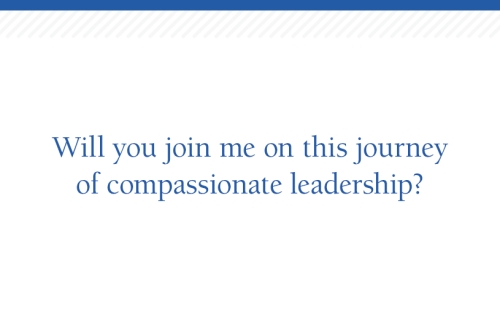Take a look at 1 Thessalonians 1 with Pastor Chuck Swindoll. Learn from one of Paul’s earliest epistles to a local church.
More InformationCurrent Broadcast
New? Start Here!
Request your free gift, connect with Insight for Living Canada, and learn more about our non-profit Bible-teaching ministry.
Current Devotional
Read 1 Corinthians 13:4–5
Love is patient and kind.
Love is not jealous or boastful or proud or rude.
It does not demand its own way.
It is not irritable,
and it keeps no record of being wronged.
1 Corinthians 13:4–5
Love is not “jealous” or “arrogant.”
Think of these two terms in contrast to “patient and kind.”
First, love is not jealous. Few things are less attractive than a suspicious, insecure, smothering protectiveness. A jealous lover’s first concern is for self, which is the exact opposite of agape. Rather than being patient, the jealous lover zealously pursues what he or she wants, even to the extreme of controlling someone else.
Second, love does not brag, which is the chief occupation of the arrogant. An arrogant person has one exclusive concern: self. Paul selected a particular Greek word that sounds like what it is. The word is phusio, and it means “to blow, to puff up, to inflate.” The verb comes from a noun meaning “bellows.” Years ago, every fireplace had an accordion-like contraption next to it. If the fire decreased to embers, someone would grab the bellows, pull the handles apart so it would fill with air, then quickly squeeze. The result was a long blast of air that would fan the dying coals into a flame again.
We’ve all been around someone like that. The handles pull apart as he or she puffs up, then the handles squeeze and out comes a long blast of meeeeeeeeeeeeee. You may have noticed that it never inspires admiration. If anything, the arrogant blowhard only draws more criticism.
On the other hand, how pleasant and surprising it is to be around individuals who are well known, gifted, and sought after, but who never make demands or expect special treatment.
Love is charming.
Paul says, “[Love] does not act unbecomingly; it does not seek its own.” The word “unbecoming” describes someone who is rude or crude, someone without class or decorum. In the positive sense, love is tactful, courteous—I would use the word “charming.” Merriam-Webster defines charming as “extremely pleasing or delightful.”
Charming love brings out the best in other people. Howie Stevenson, our minister of worship for many years in the church I served in Fullerton, California, taught me that people are charmed into righteousness. I’ve never heard anyone say, “You know what? He slammed me over the head with a baseball bat, and I realized I need to be more like Christ” or “She treated me like dirt, and now I want to see things her way and follow Jesus.” Of course not! The kind of love that bonds people is a winsome, charming love that thinks more of others than of self.
Taken from The Owner’s Manual for Christians by Charles R. Swindoll. Copyright © 2009 by Charles R. Swindoll, Inc. Used by permission of HarperCollins Christian Publishing. www.harpercollinschristian.com
Ministry Offer

Discovering Your Child—and Yourself
If we hope to get parenting right, we must follow the principles God has recorded for us in His Word. The best parenting starts with discovering who your child is. In the process you may also discover yourself!
View DetailsCurrent Articles
Let’s prioritize kindness and encouragement in our interactions—knowing that God’s message will be more readily received if His followers communicate with genuine care and attention.
Are you weathering a storm? Is Jesus calling you to come closer to Him through it? Don’t let fear pull you under. Fix your eyes on Him. Feel His presence. Experience the joy of walking on waves with Him.
Happiness, though, rarely likes to stick around. I mean a lasting happiness, an unshakable sense of contentment, an abiding bliss. It’s the kind of happiness that stays truly satisfied because of an inner peace deep within, regardless of circumstances
Joy Is a Choice
I have told you these things
so that you will be filled with my joy.
Yes, your joy will overflow!
(John 15:11)










